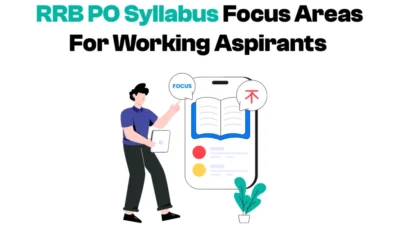A lot of people ask the same question once they hit their 30s, 40s, or even 50s: “Is it too late to become a teacher?” If you’ve been thinking about changing careers and working with students, you’re not alone. Many professionals in different fields are now moving toward education because they want a more meaningful role in their community.
Life paths don’t always follow a straight line. Some people realize years later that they want to teach but didn’t go to school for education. Others may have dreamed of it earlier but chose a different career for practical reasons. The good news is that the door to teaching is still open.
School districts across the country are facing a real need for skilled, dedicated teachers. That’s why they welcome people with real-life experience—people who bring different perspectives into the classroom. The path may be different from what it is for traditional education majors, but it’s still within reach.
Teaching Doesn’t Have a Deadline
People from many backgrounds have successfully made the switch to teaching. Some come from business. Others worked in healthcare, media, or customer service. What they often share is the desire to work in a role that helps others and makes a daily impact. They also tend to bring patience, flexibility, and a strong sense of responsibility, which are all valuable traits for anyone in front of a classroom.
Programs designed for career changers help make that transition easier. Alternate route certification and flexible learning paths mean you don’t have to start from scratch. You can keep working while you study and even enter the classroom as a teacher of record in many states.
If you’re thinking about making this shift, a great place to start is by looking into doing a master’s in elementary education degree online. Programs like the one at William Paterson University are designed for working adults who want a direct path into teaching. Their Master of Arts in Teaching with a focus on elementary education is offered fully online. Students can take classes while actively teaching. That makes it possible to apply what you’re learning in real time. The program is CAEP-accredited, can be completed in about two years, and offers a middle school endorsement option for those who qualify.
It’s a setup that gives people more flexibility without pushing them to leave their jobs or make huge lifestyle changes. It also builds real classroom experience from day one.
What You Need to Start the Process
Getting started may seem like a lot, but the steps are clear. In most states, you need a bachelor’s degree in any subject. It doesn’t have to be in education. You’ll also need to pass a background check and meet any exam or certification requirements set by your state. Some states require a Certificate of Eligibility (CE), which allows you to begin teaching while completing your coursework.
Many online teaching programs are designed to support working adults through this process. They provide guidance on meeting certification requirements and help students stay on track while balancing their current responsibilities. Since these programs are online, you can study from home, on your own schedule, without needing to pause your job or personal life.
You’ll also find that you’re not doing it alone. These programs often include other career changers who are working toward the same goal. Learning with people who understand your situation can make the journey smoother and more encouraging.
What It’s Really Like to Switch to Teaching
Changing careers comes with questions. Many people wonder if they’ll fit in or whether they’re too far behind to keep up with newer teachers. The truth is, age or background doesn’t matter as much as your mindset. Schools need teachers with all kinds of life experience.
Older students bring something valuable to the classroom. They often have strong communication skills and a clear sense of purpose. They may also be more confident working with parents, coworkers, and school leaders.
Modern teacher prep programs include support systems like faculty guidance, access to mentors, and real-world classroom assignments. These help ease the transition. They also give you a chance to ask questions, try new methods, and learn what works for you.
Tips for Balancing Work, Study, and Life
Time management makes a big difference. Create a weekly plan that includes study hours, work shifts, and personal time. Break assignments into small tasks. Doing a little each day keeps you from feeling overwhelmed.
Talk with your family about your goals. Let them know when you’ll need quiet time or extra help. Many people in programs like this have families, too. They understand the challenges and support each other.
Online programs are flexible. You can often watch lectures, turn in assignments, and join discussions on your own schedule. That freedom helps you stay consistent without giving up your routine.
Becoming a teacher later in life isn’t out of reach. With the right program and the right mindset, it’s possible to step into the classroom and make a difference. Your experience matters. If you’ve been thinking about this path, now is a good time to take that first step.

Lexy Summer is a talented writer with a deep passion for the art of language and storytelling. With a background in editing and content creation, Lexy has honed her skills in crafting clear, engaging, and grammatically flawless writing.



